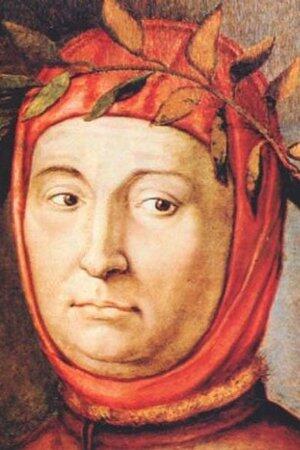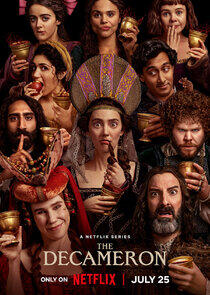
Giovanni Boccaccio
His most notable works are The Decameron, a collection of short stories, and On Famous Women. The Decameron became a determining element for the Italian literary tradition, especially after Pietro Bembo elevated the Boccaccian style to a model of Italian prose in the sixteenth century. Boccaccio wrote his imaginative literature mostly in Tuscan vernacular, as well as other works in Latin, and is particularly noted for his realistic dialogue which differed from that of his contemporaries, medieval writers who usually followed formulaic models for character and plot. The influence of Boccaccio's works was not limited to the Italian cultural scene but extended to the rest of Europe, exerting influence on authors such as Geoffrey Chaucer, a key figure in English literature, and the later writers Miguel de Cervantes, Lope de Vega and classical theatre in Spain.
Boccaccio is considered one of the "Three Crowns" of Italian literature along with Dante Alighieri and Petrarch. He is remembered for being one of the precursors of humanism, of which he helped lay the foundations in the city of Florence, in conjunction with the activity of his friend and teacher Petrarch. He was the one who initiated Dante's criticism and philology: Boccaccio devoted himself to copying codices of the Divine Comedy and was a promoter of Dante's work and figure.
In the twentieth century, Boccaccio was the subject of critical-philological studies by Vittore Branca and Giuseppe Billanovich, and his Decameron was transposed to the big screen by the director and writer Pier Paolo Pasolini.
Biography from the Wikipedia article Giovanni Boccaccio. Licensed under CC-BY-SA. Full list of contributors on Wikipedia.
Part of Crew
Recently Updated Shows

The Creep Tapes
Based on a collection of videotapes in the secret vault of the world's deadliest and most socially uncomfortable serial killer, who hires his victims to film him for the day under false pretenses, each episode exposes a new victim from one of the fabled 'Creep Tapes'.

America's Funniest Home Videos
ABC's longest-running primetime entertainment show, America's Funniest Home Videos, returns for season 36 this fall with the same mission -- giving families something genuinely funny to enjoy together on Sunday nights.
"AFV," the longest-running primetime entertainment show in ABC history, returns for season 36 with the same mission - to provide viewers with hysterical moments that fly by at a dizzying pace.

The Real Housewives of Potomac
Just up the river from our nation's capital lies a hidden gem—Potomac, Maryland. Its rolling hills, gated mansions, sophisticated prep schools, and exclusive country clubs all serve to keep the area invitation-only. Sprinkled throughout this community are a handful of old-line, wealthy African-American families who have historically broken racial barriers to provide a life of privilege for their children. The Real Housewives of Potomac follows the upscale lives of six intriguing, well-to-do women: Gizelle Bryant, Katie Rost, Karen Huger, Charrisse Jackson-Jordan, Robyn Dixon, and Ashley Darby, all of whom have fought for their places in this society by way of legacy or marriage. In a town where entry is granted only through class, pedigree, and lineage, how far will these ladies go to secure their spot at the top of this prestigious circle?

The Traitors Canada
Follow a group of contestants – including some familiar faces – who live together as they complete a series of challenges with the goal of earning a cash prize. The catch? Some of the contestants are traitors who will attempt to deceive and manipulate their way to the prize instead of sharing it amongst the group. In this psychological adventure will the traitors be unmasked in time?

